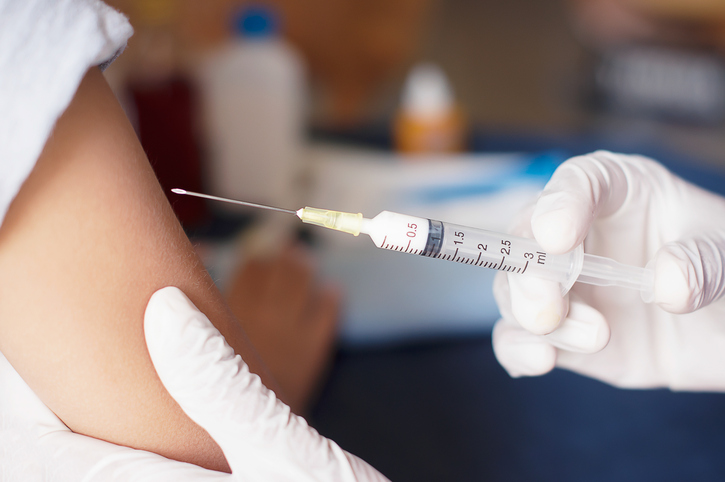Protecting your child from infectious diseases is not something that’s on your back to school supply list, but it is something you should be talking to your doctor during their next check up. There are 3 vaccines that are recommended for teens and pre-teens, which might be something to look into before sending your children back to school this fall.
HPV
The human papillomavirus (HPV) is a very common virus that spreads among people when they have sexual intercourse. The infection can lead to cervical, vaginal, and vulvar cancers in females and penile cancer in men. It can also cause anal cancer, throat cancer, and genital warts in both men and women. Every year approximately 14 million people, including sexually active teens become infected. The vaccine is recommended when you reach 11 or 12 years of age. The sooner they get it, the higher the immune response. The HPV vaccination is a series of shots given over a period of several months, so make sure you contact your doctor to make sure your child receives all of them.
This vaccine protects against the bacteria that causes meningococcal disease, which is cause by Neisseria meningitides bacteria. The 2 most severe and common illnesses caused by these types of bacteria include infections of the fluid and lining around the brain and spinal cord, as well as bloodstream infections. Meningococcal disease is not very common, but it can be deadly. Pre-teens should receive this vaccine when they reach 11 or 12 years of age.
TDAP
Tetanus, Diphtheria, and Pertussis (TDAP) are vaccines that babies and young children receive, but as they grow older, the protection can wear off, which is why they need to get these shots again when they reach their pre-teen and teen years.
Tetanus: is caused by a toxin made by a bacteria that enters through cuts, scratches, or puncture wounds in the skin. It can be a very dangerous infection, since 1 out of 5 people who get tetanus die from the infection.
Diphtheria: This can spread through coughing or sneezing and it can create a thick coating in the back of the nose or throat, which makes it difficult to breathe or swallow. It can cause paralysis and heart failure. 1 out of 10 people that get diphtheria die from it.
Pertussis (whooping cough): This is another one that spreads through coughing and sneezing. It can cause a bad cough making it difficult to breathe afterward. This cough could last for several weeks and it’s very important to be vaccinated especially if you have young children. Whooping cough could be deadly for babies since they are too young to get the protection from their own vaccines.
Talk to your doctor if you have an adolescent between the ages 11-18 to make sure they receive these vaccinations that prevent these illnesses. Also, don’t forget that all the members of your family, including teens, need a flu shot because this vaccine can help prevent them from catching the flu, which could also be deadly in some cases. Most of these vaccines have no side-effects, but if you have any questions, talk to your doctor about the risks.
NEXT: HPV Vaccine Rates Highest in Poor and Hispanic Communities
